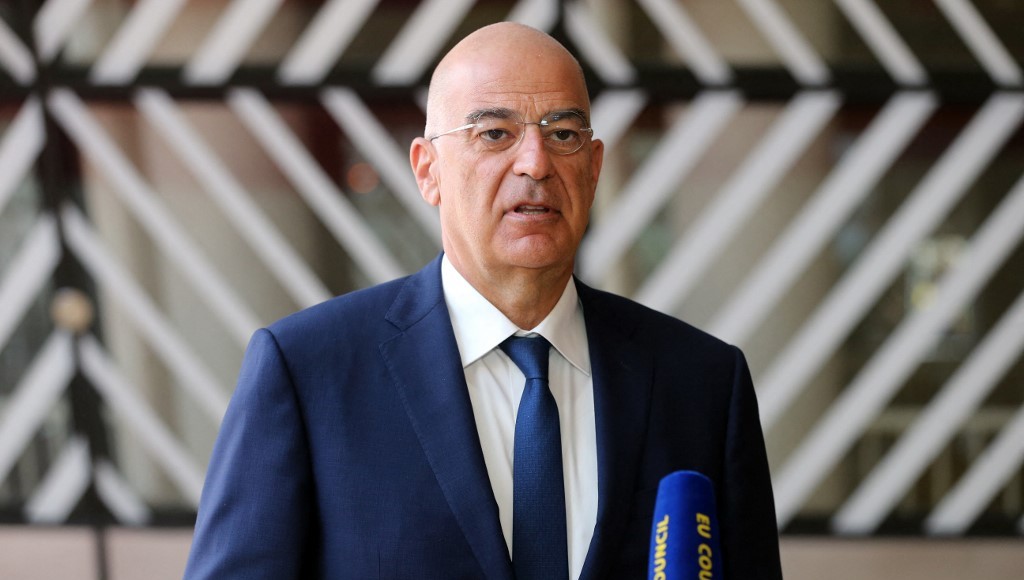Turkish and Greek authorities have traded harsh criticism over Turkey’s military operation in Cyprus in 1974, with each side accusing the other of distorting the background and unfolding of events, Turkish and Greek media outlets reported.
The row began when Greek Defense Minister Nikos Dendias visited Cyprus on Monday, the 50th anniversary of a military coup in 1974 that overthrew the government of the time and paved the way for the Turkish invasion of the Mediterranean island.
Cyprus, which joined the European Union in 2004, has been divided since Turkey’s 1974 invasion of the northern part of the island in response to the coup by Greek Cypriot nationalists who wanted to link the country to Greece.
The northern part of the island, with a majority of Turkish Cypriots and Turkish settlers, was self-proclaimed as the Turkish Republic of Northern Cyprus (KKTC) in 1983.
Following a meeting with his Cypriot counterpart, Vasilis Palmas, in Nicosia on Monday, Dendias said the 1974 coup had “opened the back door to the intruder who was lurking,” in an implicit reference to Turkey.
He said it is unacceptable for a European capital, the capital of an EU member state, a member of the United Nations, to be divided for half a century, to have green or any other colored lines.
Dendias was referring to a UN-controlled buffer zone, known as the Green Line, between the northern and southern regions of the island.
He accused Turkey of violating international law and the United Nations Charter for the past 50 years while calling for “a just and viable solution” to the Cyprus problem in line with UN Security Council resolutions, which call for a bi-zonal, bi-communal federation.
The Turkish Defense Ministry was quick to respond to the Greek defense minister’s remarks in a strongly worded statement on Wednesday.
“We strongly condemn the low-level, false, and slanderous statement made by the Greek Minister of Defense Nikos Dendias, targeting the Turkish Cypriots and the heroic Turkish army,” the Defense Ministry said in a statement.
The ministry denied Dendias’ accusations of Turkey’s violation of international treaties, claiming that the country’s army took action in accordance with Turkey’s right of guarantee derived from international agreements and “saved the Turkish Cypriot people, who were subjected to all kinds of persecution by the Greek Cypriot side between 1963 and 1974, from an attempted genocide.”
“Thanks to the courage and presence of the Turkish army, no blood has been shed in Cyprus since 1974. The oppression of the Greek junta on the Greek Cypriot people has been eliminated, the military regime in Greece has been overthrown and the return to democracy has been made possible. The Turkish army will continue to be the guarantor of peace and stability in Cyprus,” the statement added.
“We call on the Greek defense minister to abandon his efforts to undermine the common stance of the leaders of the two countries, which aims to promote Turkey-Greece relations in a constructive manner. Mr Dendias’ attempts to advance his political career by creating turmoil between the Turkish and Greek people will not yield any results.”
The Greek defense ministry immediately responded to the Turkish defense ministry’s statement later on the same day with another statement filled with irony.
The Greek ministry expressed “regret” that during his visit to Cyprus, Dendias had “omitted to ‘thank’ the Turkish forces of invasion and occupation for their ‘services’ in defending the principles [enshrined] in the United Nations Charter, the territorial integrity of the Republic of Cyprus, the protection of human rights and democracy.”
The exchange of barbs between the two neighbors and NATO allies come against the backdrop of efforts to reduce tensions and put their relations on track.
After years of tension over migration, energy rights and maritime borders in the Aegean Sea, Greece and Turkey restarted high-level talks in December when President Recep Tayyip Erdoğan paid his first to Athens since 2017 and signed a declaration of friendship between the two historic rivals.
Greek Prime Minister Kyriakos Mitsotakis reciprocated Erdoğan’s visit on May 13.

